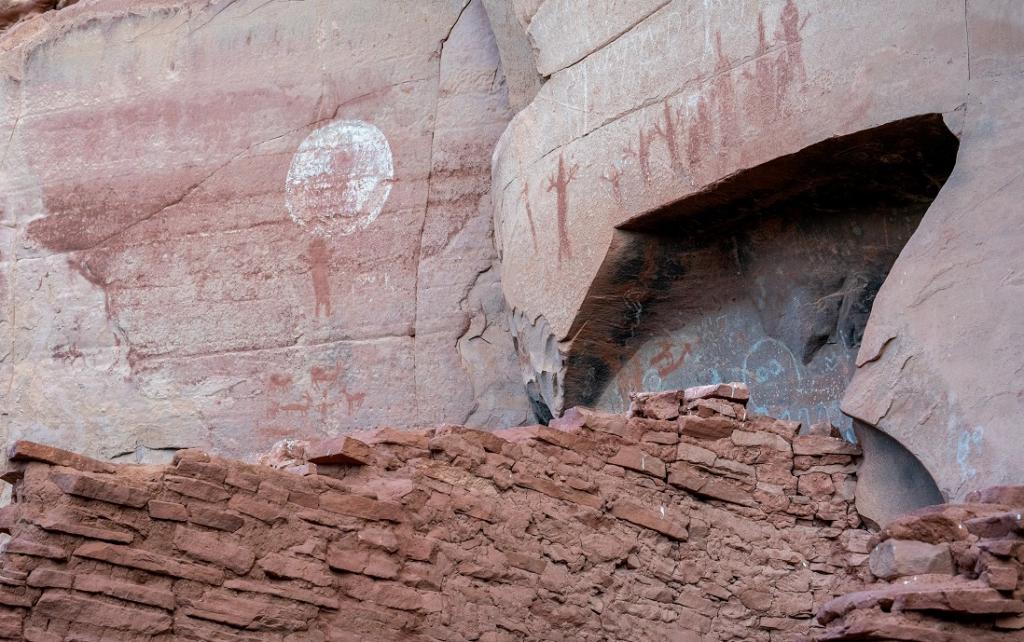

Down To Earth talks to author Daniel Pinchbeck about what the Hopi Native Americans of Arizona can teach the modern world which is warming incredibly fast


 Ancient Hopi petroglyphs in Arizona in mesa ruins. Photo: iStock
Ancient Hopi petroglyphs in Arizona in mesa ruins. Photo: iStock
The summer of 2022 has broken all records as far as global warming and human-induced climate change are concerned. Europe is suffering from its worst drought in half a millennium. Its mighty rivers such as the Danube, Po, Rhine, Thames and Loire have dried out.
China and the United States are also bone dry, with the Yangtze and Lake Mead dipping to their lowest levels. Meanwhile, cloudbursts and floods have affected both India and Pakistan (where 1,000 people have died).
Clearly, humanity’s unsustainable lifestyle, including the use of fossil fuels, have brought things to such a pass. Perhaps the world needs to look back to the past and what it has taught.
The Hopi, a Native American nation of Arizona, are globally known for mysterious prophecies that feature in their mythology and folklore which talk about how the world will end once it becomes extremely unbalanced.
Can Hopi mythology and spirituality be taken seriously? The Hopi are among the world’s oldest surviving dry farmers and have thrived growing maize, squash and beans in the Arizona desert for millennia. Their dry farming methods are based on indigenous knowledge, custom and tradition that, in turn, are rooted in their spiritual beliefs.
Down To Earth spoke to author Daniel Pinchbeck about Hopi wisdom and its usefulness in today’s transforming world. Edited excerpts:
Rajat Ghai: What can the rest of the world learn from the Hopi about saving the planet? And what can the Hopi learn from the rest of us?
Daniel Pinchbeck: I don’t think the Hopi have much to learn from us. They were forced to be acculturated, to have roads and to have their lands mined for minerals.
I think we can learn an entire different mindset, language and way of life and being from cultures like the Hopi. They don’t think of time as we do. Their language doesn’t discuss past, present and future but instead talks about ‘subjective’ and ‘objective’ aspects of reality.
Their subjective is the unmanifest, the not-yet-emergent. The objective is the tangible world we currently see around us. This is actually more precise according to the current understanding of physics such as Heisenberg’s Uncertainty Principle.
I think the modern world needs to regain humility and see how we have failed despite our over-application of intellectual thought and we need to learn from indigenous wisdom traditions.
RG: Can Hopi prophecies, which were passed orally over centuries, be seen as accurate commentaries on the current state of global affairs?
DP: It seems to me that this is the case. But one has to explore this carefully. I wrote a 400-page book 2012: The Return of Quetzalcoatl to try to fully understand the value and meaning of indigenous and ancient prophecies.
But certainly, the Hopi were aware that we were entering a time of intense transformation that they saw as the bridge between two worlds — the Fourth World and the Fifth World.
Similarly, the Aztecs in Mexico talked about the shift from the Age of the Fifth Sun to the Age of the Sixth Sun. Sergio Magana is a good chronicler of this tradition and its prophetic knowledge.
The Hopi and other indigenous traditions understand that modern industrial capitalist culture has thrown the world radically out of balance and unleashed an ecological catastrophe.
We need to change our ways and way of understanding on a very deep level. Indigenous cultures provide a template for this.
RG: Would it be fair to compare the Hopi’s lived environmentalism with the modern movement that began in the West?
DP: I don’t know if you can compare them. Many indigenous cultures like the Hopi integrated an ecological ethos into their way of life and language.
There is a theory that the Hopi long ago chose to live in a high desert environment where nature was delicate so that they would be forced to attune their perceptions in a way that would lead to their spiritual growth.
We should turn to indigenous cultures in this time of crisis and enlist their help in redesigning our broken systems that are endangering humanity’s future.
RG: Are we really going into the Fifth World as the Hopi believe?
DP: Myth is more of an analogical way of thinking rather than a linear one, but that doesn’t make it incorrect
We may be moving toward extinction or we may avert the worst possibilities by coming together into one human family through this universal catastrophe that is starting now.
I believe that this coming together into one human family would be the transition into the Fifth World, as we break apart the individualised ego structure and recreate a harmonic relationship to the Earth and the cosmos.
We are a voice to you; you have been a support to us. Together we build journalism that is independent, credible and fearless. You can further help us by making a donation. This will mean a lot for our ability to bring you news, perspectives and analysis from the ground so that we can make change together.

Comments are moderated and will be published only after the site moderator’s approval. Please use a genuine email ID and provide your name. Selected comments may also be used in the ‘Letters’ section of the Down To Earth print edition.